PLANTAIN FARMERS IN ASANTE AKYEM AGOGO RECEIVE TRAINING ON CLEAN SEED PRODUCTION
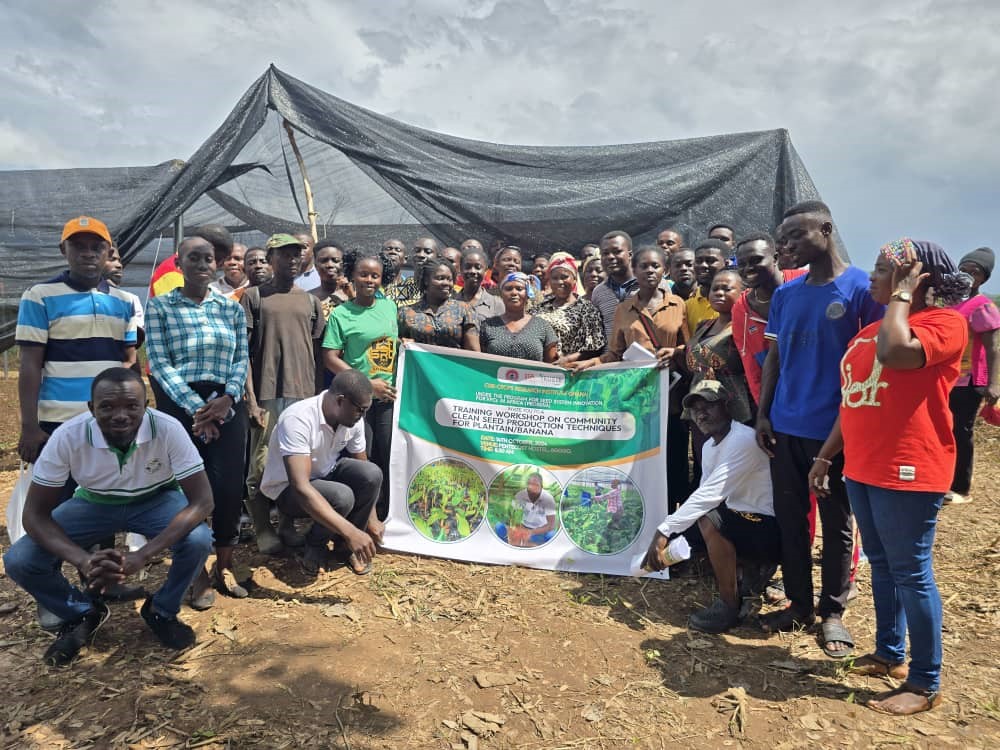
Plantain farmers from Agogo and surrounding communities in the Asante Akyem North District have received specialized training on producing clean seeds using a method called detached corm macro-propagation. This initiative, led by the Banana component of the Program for Seed System Innovation for Vegetatively propagated Crops in Africa (PROSSIVA) project, was organized by the CSIR-Crops Research Institute (CSIR-CRI) to enhance plantain crop quality, increase yields, and minimize the spread of pests and diseases.
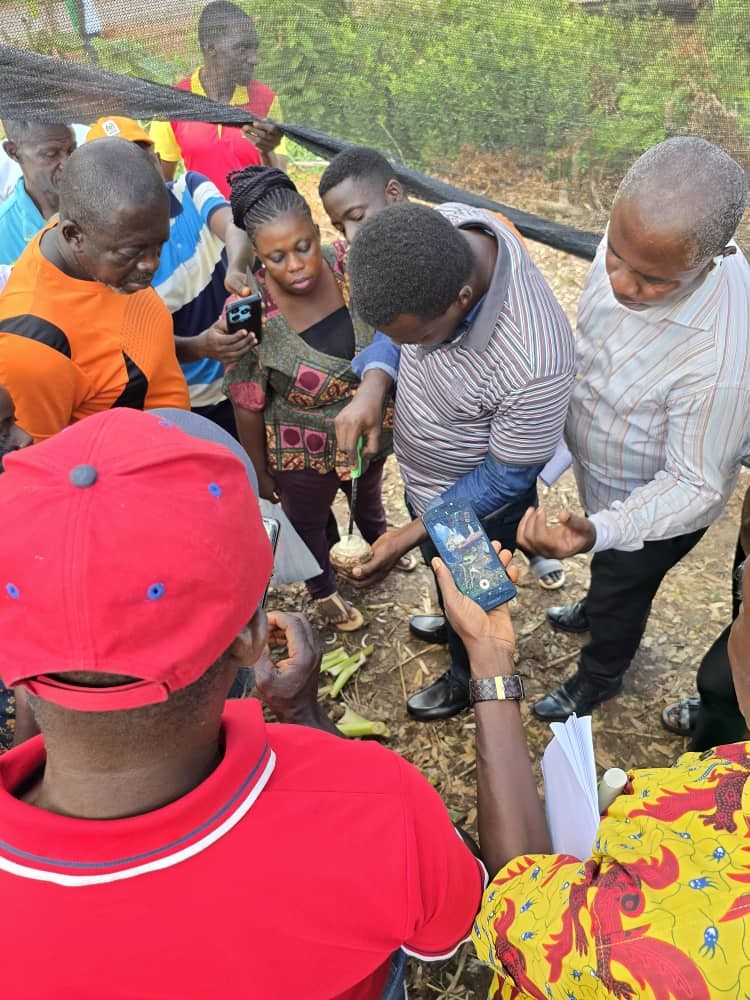
The training focused on detached corm macro-propagation, a technique that allows farmers to generate large quantities of clean, disease-free planting materials from a few suckers. Unlike traditional methods, which can often spread pests and diseases, this approach ensures that farmers cultivate high-quality plantains with early maturity, greater productivity, and low disease pressure.
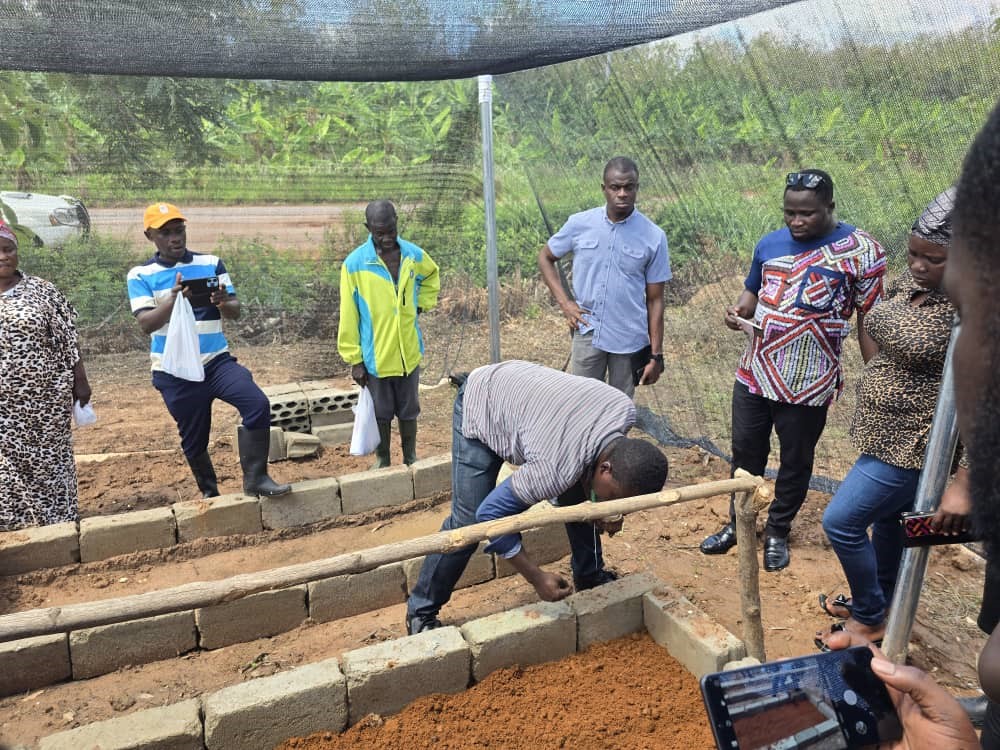
During the sessions, experts demonstrated how to properly select and treat corms to ensure they are free from disease before being used for propagation. Farmers were guided through the step-by-step process of preparing corms, constructing propagators, maintaining optimal humidity, and managing temperature conditions to promote healthy seedling growth. By adopting this method, farmers can significantly boost their output, leading to more sustainable and profitable plantain farming.
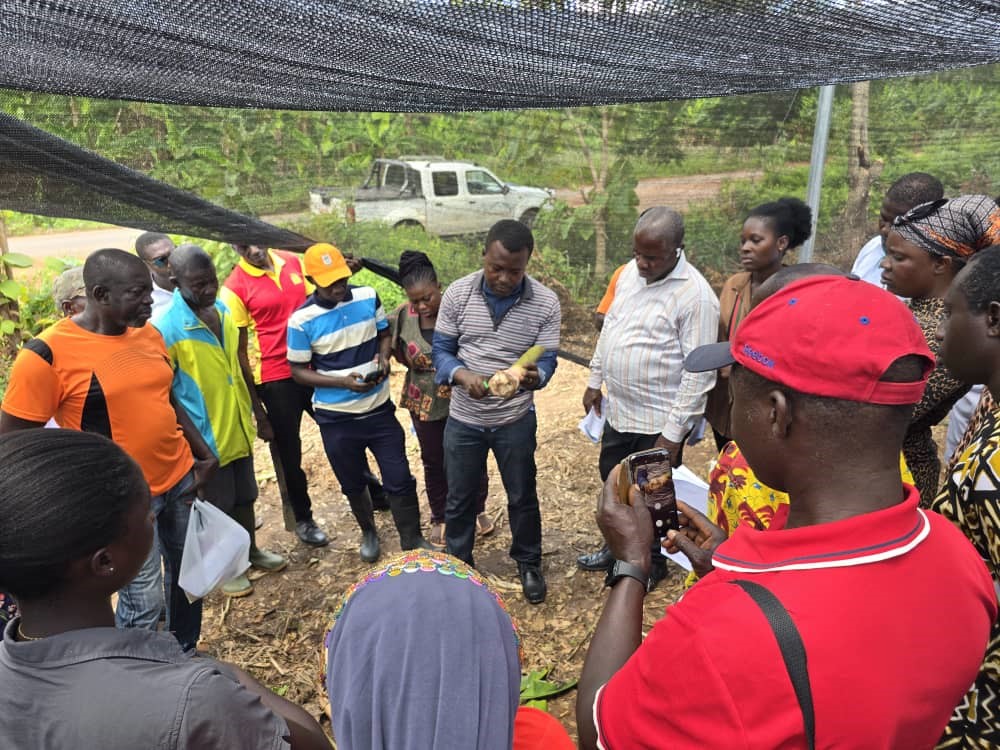
Dr. Isaac Osei Bonsu, a senior research scientist at CSIR-CRI and the project lead, educated participants on the types of clean seeds, the construction of macro-propagation chambers, and the proper selection and preparation of suckers, including paring and de-sheathing. He emphasized the importance of using clean planting materials, stating, “Most of the challenges faced by plantain farmers stem from the use of infected suckers, which spread diseases and pests that stunt plant growth and reduce yield. With this training, we are empowering farmers with the knowledge and skills they need to produce their own clean planting materials. Aside from the benefit of obtaining clean planting materials for their farms, farmers could also sell surplus seedlings to other farmers, thereby expanding the sources of income. This will not only improve productivity but also ensure food security and enhance livelihoods of farmers.”
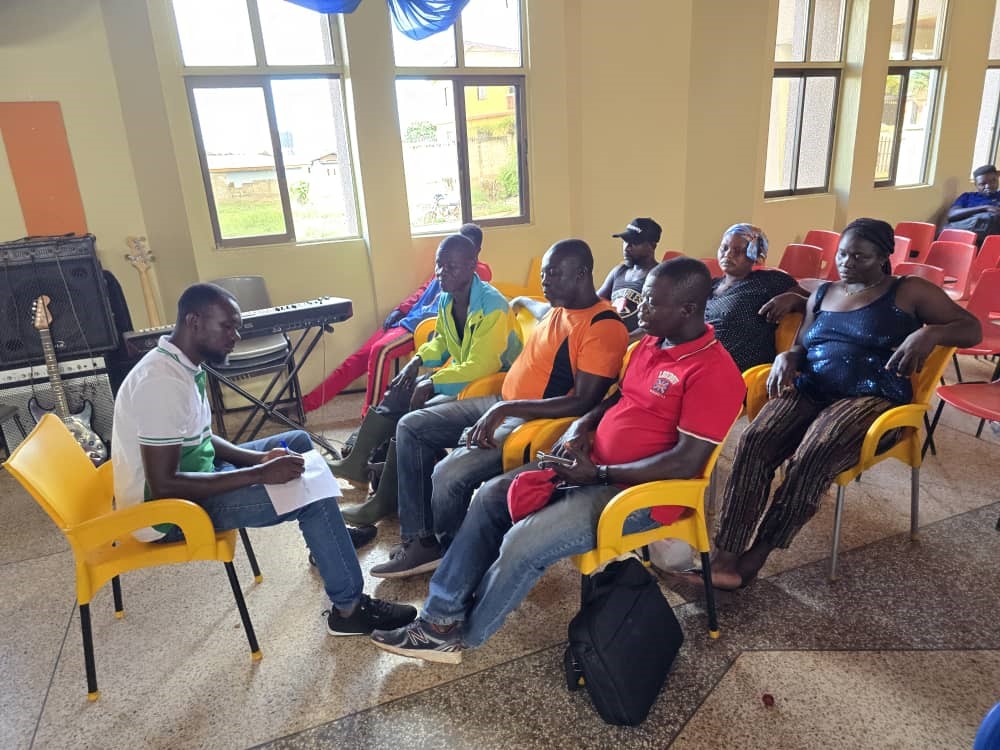
The training was also attended by Mr. Raphael Atta Poku, the District Director of the Ministry of Food and Agriculture (MOFA) in Akyem Agogo. He underscored the need for farmers to participate in such programs to equip themselves with the knowledge to produce high-quality plantain seeds.
Field Tour of Plantain Demonstration Field
As part of the training, participants engaged in a hands-on practical session at the newly-constructed community clean seed nursery and demonstration field. Experts guided them through the step-by-step process of clean plantain seed production, from preparing suckers for planting in chambers to harvesting. Farmers also had the opportunity to practice each stage of the process, gaining firsthand experience in the production of clean planting materials.
Positive Feedback and Future Expansion
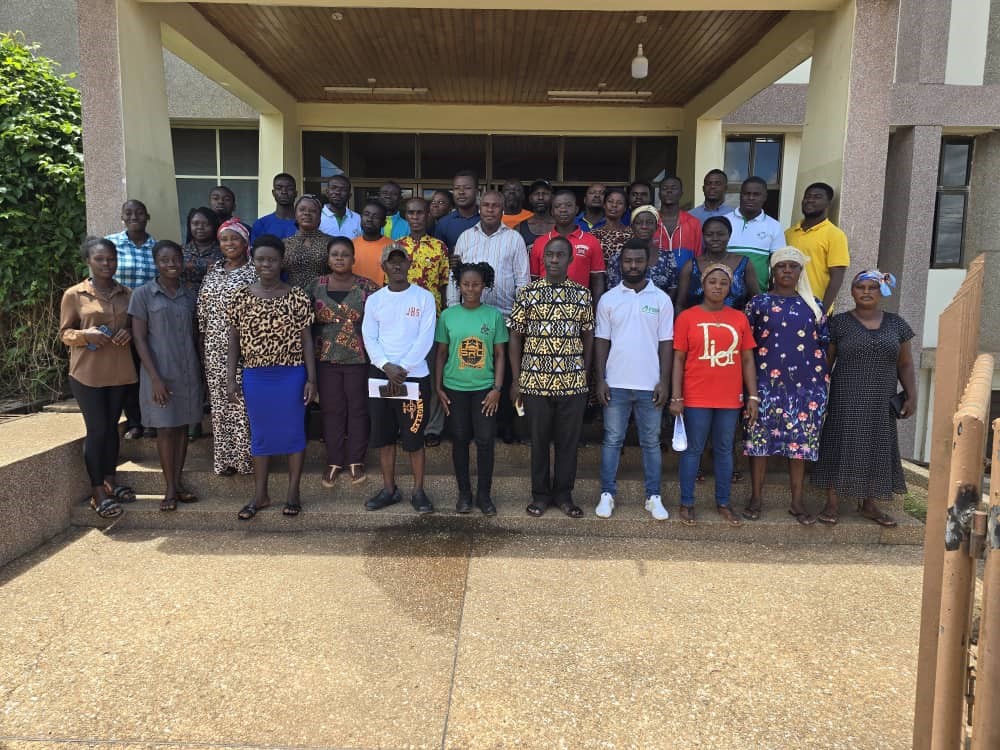
The initiative has been well received by farmers, many of whom are optimistic about the benefits of detached corm macro-propagation. Samuel Mensah, a local plantain farmer, shared, “This training has opened our eyes to new techniques that can help us grow better crops. I am excited to start using what I’ve learned on my farm, and I hope it will lead to better harvests.”
The Banana component of the PROSSIVA project seeks to improve and help to establish a formalized seed system for plantain in Ghana. The project aims to expand this training program to reach more plantain farmers across Ghana, providing them with the necessary tools and resources to adopt clean seed production practices. By promoting innovative agricultural techniques, the initiative seeks to boost plantain production, improve farmers’ livelihoods, and strengthen the country’s agricultural sector.
Authors: Dennis Gyasi Boakye, Bernard Sakyiamah, Enoch Bobie Agyemang
